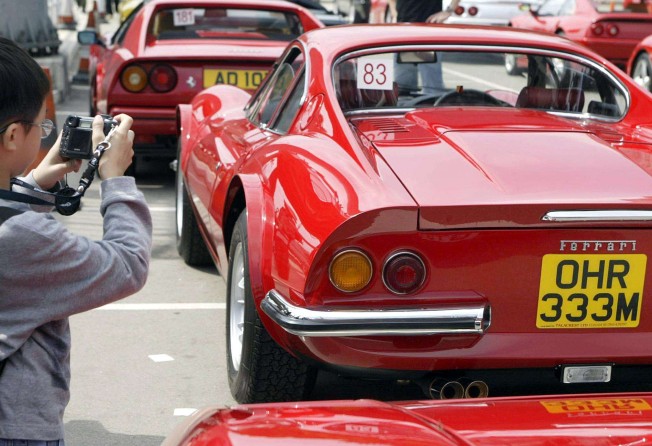
The time might be right to slap taxes on ‘sinful’ spending
And that falls into three clear areas: items that are self-indulgent, harm our health, and our environment

In tackling Hong Kong’s yawning inequality problem, I argued last week that it was better to encourage families at the bottom than to punish those at the top.
But anything that reduces the gap between rich and poor is by its nature redistributive – so anything that aims to put our politically corrosive inequality “gini” back in the bottle is likely to involve our rich paying a higher price than our poor. I am very tempted by “sin taxes”.
They appeal top me not simply because of my Methodist upbringing, but because they force us to think carefully about what we truly need, and what we self-indulgently want.
They also steer us away from activity that harms us, our community, or our environment. We should not be punished for indulging a need. Forcing extra costs on us if we seek to indulge a want seems hugely fairer.
Another advantage of sin taxes is that they are intrinsically local – and so are relatively hard to avoid. If a taxman tries to impose death duties on the rich, or capital gains on our investment profits, or high corporate or salary taxes, the smart and the rich quickly find slippery ways of “managing” such tax liabilities. But if you want a Rolls-Royce and want to use it on a routine basis, then taxing such purchases locally is relatively foolproof.
Don’t get me wrong. I would like for us to pay as little tax to our government as possible, and don’t want government to meddle unduly in our lives. Hong Kong’s historic preference to keep the government small and to leave as much money as possible in our pockets, is admirable and an important contributor to the success of our economy.
But our government has correctly put heavy emphasis on building what I think of as “essential infrastructure” – ranging from good schools, a good health system, and a first class transport infrastructure and public transport system, to a strong and competitive digital infrastructure.
And such essential infrastructure costs money – often a lot if we want to minimise our inequality gap.
Raising revenue for such spending as effectively as possible makes it perfectly reasonable to consider “sin taxes”

It is significant to talk of raising “revenue”. Too much of the past debate over government spending has focused on tax – with complaints that Hong Kong has a too narrow tax base.
Historically, Hong Kong governments have been smart to focus on revenue rather than simply on tax. It is one of the reasons why so much government income today comes from fees and charges – like stamp duty or fees on property and stock market transactions, or the levy on gambling through the Hong Kong Jockey Club – rather than from corporate or salary taxes.
So keeping the overall tax burden as low as possible will always be good – but if we assume that we will still need taxes in some form then making them as fair and effective as possible seems good. Hence sin taxes.
I see sin taxes falling into three clear areas: biasing tax charges onto items that are self-indulgent wants rather than basic needs; disincentivising spending that harms our health; and punishing spending that harms our environment (or contributes to global warming).
Keeping the overall tax burden as low as possible will always be good – but if we assume that we will still need taxes in some form then making them as fair and effective as possible seems good. Hence sin taxes
At the heart of such a system would need to be a fundamental and controversial shift in our tax system, away from taxes on salaries and towards VAT- or GST-type taxes on spending.
Some targets for self-indulgence of wants are easy to identify. No-one needs a Ferrari, or a private jet, or a Chanel handbag. No-one needs a bottle of vintage wine of champagne. No-one needs diamond jewellery. None of us will starve without caviar.
Taxes on such discretionary luxury wants would be fair, and would in broad terms shift the tax burden to those in our society who can afford to pay.
Some items are trickier, because it is tougher to decide whether they are wants or needs.
In Hong Kong, with such a marvellous transport system, it is arguable that even a car is a self-indulgent want for most Hong Kong people. I have for 14 years lived in remote Clearwater Bay without ever owning a car.
In many developing societies, a baby diaper is seen as an environment-damaging want rather than a need. But many families in Hong Kong would argue fiercely that they are essential on hygiene grounds, and because of increased comfort for their babies.
Sin taxes on things that harm our health have been debated widely, and in many countries have resulted in some perverse results. Taxes on cigarettes and cigars are probably a no-brainer. So too are taxes on alcohol, though many governments have for political reasons punished one form of alcohol rather than another – spirits more than beer, or western wines more than Chinese traditional spirits, for example.
While it might be reasonable to argue that spirits or expensive wine should be taxed at higher rates because they are generally consumed by the wealthy, surely a better general rule should be to tax on the amount of alcohol in the bottle or can.
More controversial, but in urgent need of attention, must be a discussion on the “sin” of consuming sugar, which is seen as a fundament cause of many of today’s chronic illnesses. Maybe we could start with Moon Cakes. Similar harm should in principle attract similar tax.
Taxing activity that harms our environment should be considered, but is controversial. Higher electricity rates for people who consume more than a certain level of electricity a month is reasonable: families in a three bedroom house with six air conditioners can surely better afford higher electricity rates that a family in 390 sq ft dependent on a fan.
Fuel is already expensive, and that is good, but congestion charges should be considered to keep people out of Hong Kong’s most crowded streets at peak times.
I know some of you will argue that I am a grumpy old curmudgeon, but if taxes are inevitable, it is surely best to focus them on self indulgent wants or on socially harmful behaviour.
David Dodwell is executive director of the Hong Kong-Apec Trade Policy Group
Illustration: Henry Wong